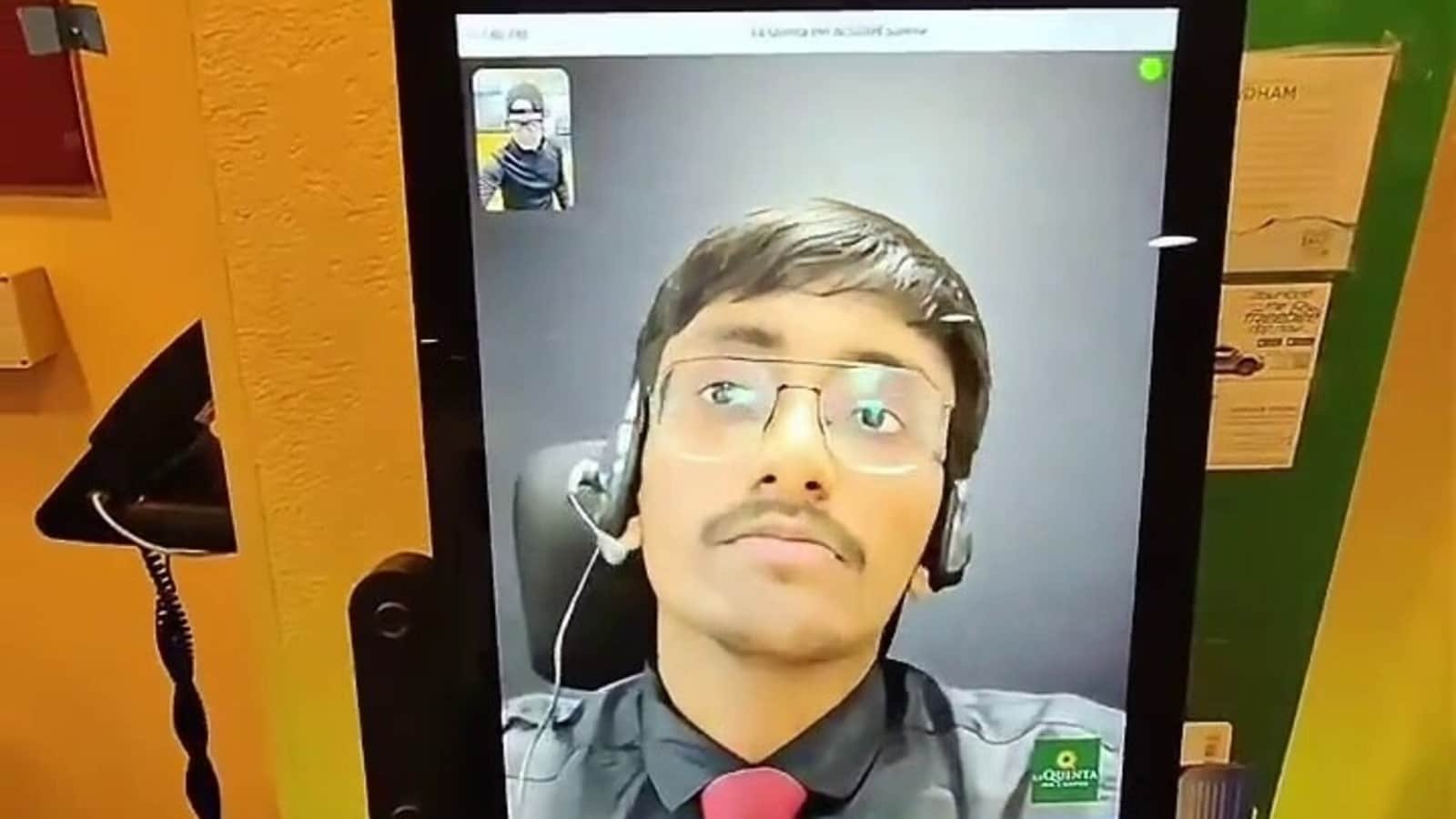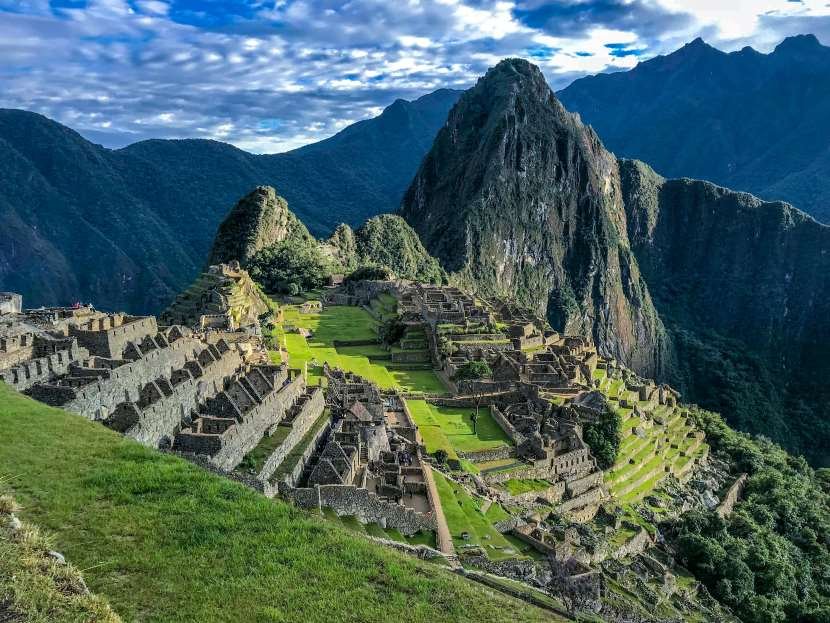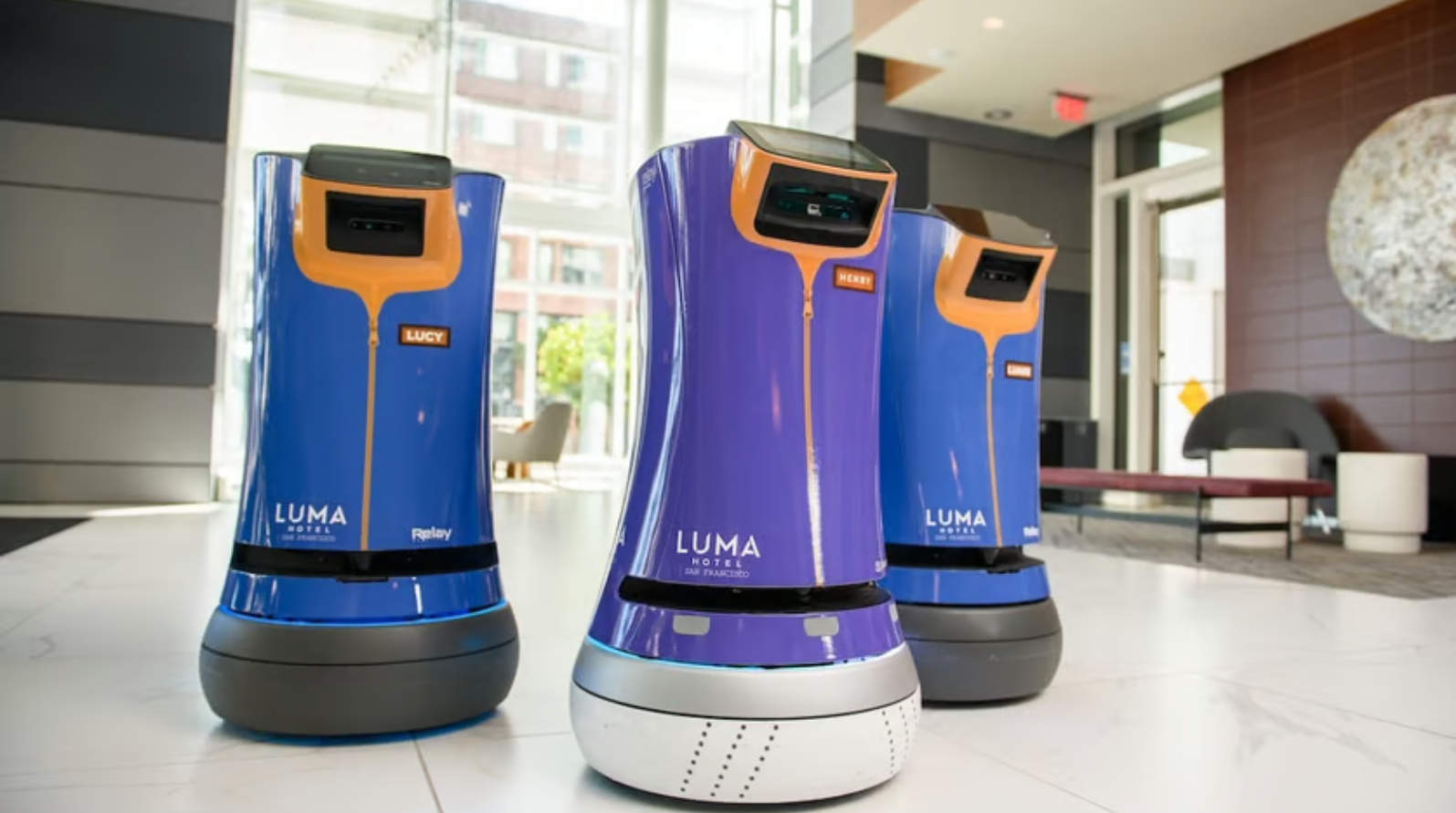Hotels & Accommodations
Warning over impact living in hotels can have on children

BBC, Liverpool
Staff at a homeless charity have warned of the impact living in temporary accommodation can have on children.
The warning comes after Liverpool city council announced plans to launch a new strategy to reduce its use of hotels and bed and breakfasts for homeless families.
There are over 450 children living in temporary accommodation in the city at the moment, with 1700 households placed in bed and breakfasts and hotels, according to the latest council figures.
Sue McDonald, who works at the Whitechapel centre, said children who had to stay in hotel rooms with their families could be privy to unsettling conversations about money and other worries, which could put “a lot of stress” on them.
“They have to go to school and create a façade that everything is normal, when it’s far from normal.” she said.
She added: “The children don’t express themselves verbally about what’s going on, but it’s through all the activities we do with them that we can see this is something that does weigh heavy on their minds.”
Currently, the council refers homeless families assessed as having the greatest need to a homeless centre, based in Toxteth, Liverpool.
Mum Kerry had been placed in five or six different hotels with her toddler before arriving there.
She said one hotel was in the city centre where she was surrounded by “drunk people” and another was in a rural location, with no access to transport.
She said: “We’ve been passed from hotel to hotel, room to room. It’s hard.”
“My son didn’t like it, he had no routine, just slung into a room with no facilities, just a kettle.” She added he had no space to play or move around.
She said staying at the centre had been “brilliant” and had “changed her perspective” on her family’s future.
She said “becoming homeless is something that could happen to anyone” and added, “you never know if you’re going to have to leave a domestic violence situation, a fire, flee”.
Kerry said private rented accommodation was impossible for her because landlords expected so much money upfront.
Councillor Hetty Wood, Liverpool City Council’s Cabinet Member for Housing, said: “Homelessness can affect anyone. Families in temporary accommodation, young people leaving care, people fleeing violence, refugees and those facing eviction all need our support.
“This new strategy is about prevention, dignity and long-term solutions. It’s also about listening to people with lived experience and making sure services respond to their needs. Everyone deserves somewhere safe to stay.”
The homeless centre is based in a huge Victorian mansion and offers self-contained flats for up to 16 families.
Alison Connor, centre manager, said losing a home is one of the “most traumatising” things that can happen to a child.
She said: “Often they’ve lost all their pets, all their toys, they’ve moved out of the neighbourhood where all their friends are.
“They may still be going to school but it’s a long way, so they may be turning up late.” She said things like free transport passes for children could help keep them in their old schools, and that consistency in education was essential for maintaining stability in children’s lives.
She added that living in the hotel system can make children feel “removed” from their “old life”.
Alison added it was becoming harder to find suitable permanent accommodation for the families to move into, sometimes taking 200 days to find somewhere for a small family.
She added larger families could be living at the centre for two years “because there’s nowhere for them to go”.
Liverpool city council said the costs of temporary accommodation were projected to rise from £250,000 in 2019 to £28m by the end of this financial year.
Hotels & Accommodations
‘Hire Americans’: Miami hotel slammed for outsourcing front desk to India | Trending

A video that shows the front desk of a Florida hotel being manned by a virtual receptionist has sparked outrage in the United States. The video has raised concerns about American jobs being outsourced to other countries at a time when the anti-immigrant sentiment is at an all-time high.
Video of virtual front desk staffer sparks outrage
The video was first shared by Pete Langs (@languageguy1) on TikTok and Instagram. It shows Langs checking into his room with the help of a man who sits not at the front desk but appears on a screen during the check-in process.
“Do you need one room key or two room keys?” the virtual front desk employee asks Langs, who replies, “Two, just in case I lose one.” The receptionist, speaking over a video call through the screen, issues further check-in instructions and generates the registration form.
“Miami virtual check in at hotels!” Langs wrote while sharing the video on TikTok and Instagram.
The video was reposted on X, where it sparked outcry against Indians for ‘stealing’ American jobs. Although there is nothing in the video to indicate that the front desk employee is Indian or not living in the US, viewers surmised from his appearance and accent that he belongs to the subcontinent.
“Hire Americans”
“Miami hotel has outsourced their front desk to India. Guests are checked in virtually on video call with an Indian representative,” read the caption on X. “More American jobs outsourced overseas. At some point this should just become illegal. If you make money in America, you should hire Americans”.
The comments section of the video was therefore quickly flooded with outrage as Americans blamed Indians for taking jobs. Many people also slammed the hotel for outsourcing the front desk role to someone sitting outside the US.
“So American jobs are being taken by Indian people overseas AND AI at the same time. Two slaps in the face,” a user said.
“The irony is people will hate the Indians who are just doing a job while completely ignoring the American bosses and shareholders who actually made the decision to outsource these jobs in the first place,” another pointed out.
“It’s up to people to actually walk out. The problem is these hotels are cheaper than everyone else because they’re hiring outside the country,” a third added.
Hotels & Accommodations
Hacienda Urubamba And Machu Picchu Pueblo Hotel: A Sustainable Travel Experience In Peru

Sunday, August 3, 2025
Located in the breathtaking Peruvian Andes, Hacienda Urubamba and Machu Picchu Pueblo Hotel uniquely combine luxury, eco-friendly hospitality, and cultural immersion. These hotels have become famous for meeting the rapid market demand for sustainable travel in Peru, while simultaneously promoting sustainable tourism in the country. Because of their stunning natural and cultural beauty, these two properties have turned Peru and the ancient Sacred Valley into a go-to destination for international travellers, which has dramatically enhanced the local economy.
Hacienda Urubamba: A High-Elevation Retreat with Cultural Significance
Nestled 9,776 feet above sea level between the iconic Machu Picchu and the historic city of Cuzco, Hacienda Urubamba offers guests an unparalleled experience. The 10-year-old property features 40 luxurious units and boasts breathtaking views of the surrounding mountains and Sacred Valley. The hotel’s design pays homage to the colonial-era hacienda style, with its architecture and décor inspired by local history and art. Guests can marvel at the intricate Inca masks, handcrafted woodwork, and colorful wall hangings that adorn the spaces, all framed by floor-to-ceiling windows that immerse them in the surrounding landscape.
The hotel sits on a 100-acre site, home to an organic plantation farmed using traditional hand tools and oxen. Guests can enjoy fresh, locally sourced New World foods, including corn, potatoes, and quinoa, which are harvested directly from the farm. This eco-friendly approach not only provides visitors with authentic tastes but also supports sustainable agricultural practices, which are crucial to the region’s economy.
The accommodations at Hacienda Urubamba are designed for comfort and privacy, with 28 stand-alone casitas spread across the property. These spacious 484-square-foot units are accessible by foot or via a motorized cart operated by staff, offering guests a private retreat amidst nature. Each casita is equipped with modern amenities, including a fireplace, sitting/dining area, and large bathrooms, ensuring that visitors feel pampered while being surrounded by nature’s beauty. The hotel also features larger suites and the Owners Quarters, providing ample space for families or groups seeking a more luxurious stay.
Machu Picchu Pueblo Hotel: A Village Among the Clouds
A short distance away, at 6,627 feet above sea level, Machu Picchu Pueblo Hotel (also known as Inkaterra Machu Picchu Pueblo Hotel) stands as a beacon of sustainable luxury. Opened in 1991, this unique property occupies 12.3 acres of private land within the cloud forest, directly below the legendary Machu Picchu Mountain. The hotel’s layout mimics a traditional village, with 83 whitewashed casitas that blend seamlessly with the natural surroundings.
Machu Picchu Pueblo Hotel is renowned for its commitment to sustainability, with features like an organic tea plantation, where guests can partake in tea-making activities as part of their stay. The property is also home to the world’s largest collection of orchids, with 372 species on display, making it a prime destination for nature lovers and eco-tourism enthusiasts. Guests are encouraged to explore the local culture through activities like tea ceremonies and guided walks around the lush grounds, enhancing their connection to the area’s rich history and biodiversity.
The hotel’s culinary offerings emphasize local ingredients, particularly organic vegetables grown on-site. Two on-site restaurants serve delicious dishes, but guests can also book private dining experiences in their rooms, in select lobby areas, or even in the wine cellar. This flexibility and attention to detail contribute to the property’s reputation for offering an exclusive and intimate experience.
Luxury and Sustainability: A Winning Combination
What sets both Hacienda Urubamba and Machu Picchu Pueblo Hotel apart from other luxury accommodations is their unwavering commitment to sustainability. In 2021, Inkaterra, the parent company of Machu Picchu Pueblo Hotel, was recognized by the United Nations as the world’s first climate-positive hotel brand. This recognition highlights the company’s extensive efforts to reduce its carbon footprint while promoting eco-conscious tourism practices. Hacienda Urubamba, too, focuses on sustainability, integrating organic farming and environmentally friendly practices into its operations.
The emphasis on local culture and traditions is also central to both properties. Guests have the opportunity to participate in cultural activities, such as local cooking classes, ceremonies with a shaman, and guided tours of nearby Inca archaeological sites. These experiences not only immerse visitors in the rich heritage of the Sacred Valley but also contribute to preserving traditional customs and supporting local artisans.
Impact on Tourism and Local Economy
Both Hacienda Urubamba and Machu Picchu Pueblo Hotel have had a significant impact on the local tourism industry and economy. By attracting high-end travellers from around the globe, these hotels have helped put the Sacred Valley and the region surrounding Machu Picchu on the map as prime destinations for luxury tourism. Their focus on sustainability, cultural experiences, and local partnerships ensures that the influx of visitors benefits both the local economy and the environment.
The hotels’ efforts to source food and products locally have provided a significant boost to the region’s agricultural sector. By supporting small-scale farmers and artisans, these properties help preserve the region’s cultural heritage while creating jobs and opportunities for local communities. Additionally, both hotels contribute to the broader tourism industry by offering employment to local residents, from hospitality staff to guides and artisans, ensuring that the economic benefits of tourism are felt across the region.
A Future of Sustainable Luxury Tourism
As the demand for sustainable travel continues to rise, Hacienda Urubamba and Machu Picchu Pueblo Hotel are poised to remain at the forefront of luxury tourism in Peru. Their focus on environmental conservation, cultural preservation, and community support sets a powerful example for other properties in the region and around the world. With plans to expand and enhance their offerings, these hotels are contributing not only to the growth of Peru’s tourism industry but also to the sustainable development of the country’s economy.
Tourism in Peru has experienced a significant increase in recent years, particularly in the Sacred Valley and Machu Picchu area. As travellers seek authentic experiences that are both luxurious and environmentally responsible, Hacienda Urubamba and Machu Picchu Pueblo Hotel provide the perfect balance of comfort, culture, and sustainability. Their continued success will undoubtedly play a crucial role in shaping the future of tourism in Peru and the broader South American region.
In conclusion, Hacienda Urubamba and Machu Picchu Pueblo Hotel epitomize the blend of luxury and sustainable tourism along with cultural preservation. These hotels profoundly reshaped Peru’s image and economy, integrating it into the world’s map of eco-friendly and luxurious tourism. These stunning hotels continue to enrich tourism and the economy, providing sustainable income to the locals, improving the economy, and fostering tourism. These hotels are expected to pave the way for sustainable tourism in the blend of Peru’s culture and pristine nature.
Hotels & Accommodations
Hotels Embracing Robots Must Focus on Planning and People First |

By Orit Naomi, HTN staff writer – 8.2.2025
A new research study offers a comprehensive look at how hotels can successfully implement robotic process automation, or RPA, in their operations. The research is one of the most in-depth qualitative analyses to date on the subject. It focuses on hotels in China and Pakistan, using thematic analysis to identify what industry professionals see as the most important factors at each stage of automation.
RPA refers to software bots that mimic human interactions with digital systems, often handling repetitive tasks like invoicing, check-ins, and updating guest information. These bots use the same applications that human workers do, often navigating user interfaces with keyboard and mouse functions to complete predefined actions. The technology has become increasingly relevant in the hospitality sector, where cost pressure, labor shortages, and rising guest expectations demand smarter operational strategies.
The study, Critical Success Factors for Implementing Robotic Process Automation in the Hotel Industry, is based on 17 semi-structured interviews with hotel executives and IT professionals working in both countries. These individuals, who held titles ranging from IT manager to general manager, were selected specifically for their experience with RPA planning or implementation. Interviews were conducted in the participants’ native languages, Urdu and Chinese, and analyzed using NVivo 14, a widely used tool for organizing and interpreting qualitative data.
What makes this research particularly significant is its phased approach to identifying success factors. Instead of viewing RPA implementation as a single moment of technological change, the researchers broke the process into three stages—before, during, and after implementation—and examined what factors contributed most to success at each point. These factors, often referred to in the study as critical success factors (CSFs), help explain not only why some hotel automation efforts thrive but also why others falter.
In the planning stage, hotels that succeeded with RPA were those that began with clear and well-defined goals. These goals were often tied directly to strategic business outcomes, such as reducing wait times at check-in, lowering labor costs, or increasing accuracy in guest billing. Without this level of specificity, hotels ran the risk of launching automation projects that didn’t align with broader organizational priorities.
Another essential step was identifying the right processes to automate. High-volume, repetitive tasks like entering reservation data or handling invoices were generally the most suitable for RPA. But this wasn’t just about identifying bottlenecks. It also involved deep process mapping, where hotel teams examined each workflow in detail to determine where automation could make the biggest impact.
A third major component was stakeholder alignment. RPA often affects multiple departments, from front-of-house operations to back-office finance teams. In hotels where the implementation went smoothly, there was early and active buy-in across teams. Managers engaged their staff in discussions about how automation could support their work rather than replace it, which helped to mitigate resistance and increase cooperation.
Feasibility studies also played a role in this early phase. Hotels that took the time to assess the technical and financial implications of RPA before implementation were better prepared for the challenges that followed. These assessments helped them anticipate the return on investment and identify any weak links in their IT infrastructure. A final element of the pre-implementation phase was vendor selection. Rather than simply choosing the flashiest or cheapest provider, successful hotels took a rigorous approach to evaluating RPA vendors. They looked for partners who understood the hospitality industry and had proven experience with similar projects.
Once implementation began, a different set of success factors came into play. One of the most consistent themes was the value of a dedicated project team. These teams, typically made up of cross-functional members from IT, operations, and management, were responsible for executing the rollout, addressing problems as they arose, and ensuring the project stayed on track. Their presence allowed hotels to maintain accountability and keep momentum throughout the implementation period.
Another major factor was process standardization. Automating a process that is inconsistent or varies across departments is a recipe for failure. Standardizing workflows prior to automation helped ensure that bots were operating within a clearly defined structure. This not only reduced the chance of errors but also made it easier to scale the system later on.
Successful projects were also built around detailed project plans that included timelines, deliverables, and contingency strategies. Without such planning, teams often found themselves reacting to issues in real time, which delayed implementation and undermined confidence. Documentation of workflows was equally important. Clear records of what the bots were doing and how each process was structured allowed for easier troubleshooting, future upgrades, and training of new team members.
Scalability was the final piece of the implementation puzzle. Hotels that adopted flexible, scalable RPA architectures were better positioned to expand their use of automation over time. These systems could adapt to increasing transaction volumes or additional use cases without requiring major redesigns. By contrast, hotels that built rigid, one-off solutions often faced costly rework when their needs evolved.
After the rollout, the focus shifted to long-term performance and sustainability. Continuous monitoring was essential. Hotels that kept close tabs on their RPA systems, tracking them in real time and using dashboards to spot irregularities, were able to catch and resolve problems before they affected guests or operations.
Measuring success was another key post-implementation activity. Rather than assuming the technology was working as expected, high-performing hotels used metrics like error rates, time saved, cost reductions, and customer satisfaction scores to evaluate impact. This data helped justify the investment and guided future improvements.
Staff training did not end once the bots went live. Ongoing education ensured that employees remained proficient in using RPA tools and confident in adjusting their workflows accordingly. Some hotels even offered refresher sessions and advanced workshops to help staff discover new ways to work alongside automation.
Support systems also played a role in sustaining success. These included internal helpdesks, technical documentation, and escalation protocols for dealing with unexpected issues. The most successful hotels treated their RPA platform like any other mission-critical system that needed regular maintenance, updates, and reliable support.
Finally, routine maintenance ensured that the system continued to perform at a high level. This included software updates, performance audits, and system backups. Without this upkeep, even well-designed RPA systems risked falling out of sync with evolving operational needs.
This study offers a detailed roadmap for any hotel considering or currently implementing RPA. The key takeaway is that success depends not just on the technology itself, but on how well it is integrated into the broader organization. Planning, cross-departmental collaboration, staff engagement, and long-term monitoring all play a critical role. The research also makes it clear that context matters. Factors like national infrastructure, cultural attitudes toward technology, and organizational readiness can shape the adoption process in different ways. For hoteliers navigating today’s competitive and increasingly digital landscape, the findings offer not just lessons but actionable guidance.
By highlighting what works—and what doesn’t—at each stage of the process, the study gives hotel managers, IT leaders, and industry consultants a practical blueprint for RPA success. In a sector where guest expectations are rising and labor efficiency is more important than ever, that’s knowledge worth having.
Related
-

 Brand Stories2 weeks ago
Brand Stories2 weeks agoBloom Hotels: A Modern Vision of Hospitality Redefining Travel
-

 Brand Stories1 week ago
Brand Stories1 week agoCheQin.ai sets a new standard for hotel booking with its AI capabilities: empowering travellers to bargain, choose the best, and book with clarity.
-

 Destinations & Things To Do2 weeks ago
Destinations & Things To Do2 weeks agoUntouched Destinations: Stunning Hidden Gems You Must Visit
-

 Destinations & Things To Do1 week ago
Destinations & Things To Do1 week agoThis Hidden Beach in India Glows at Night-But Only in One Secret Season
-

 AI in Travel2 weeks ago
AI in Travel2 weeks agoAI Travel Revolution: Must-Have Guide to the Best Experience
-

 Brand Stories4 weeks ago
Brand Stories4 weeks agoVoice AI Startup ElevenLabs Plans to Add Hubs Around the World
-

 Brand Stories3 weeks ago
Brand Stories3 weeks agoHow Elon Musk’s rogue Grok chatbot became a cautionary AI tale
-

 Asia Travel Pulse4 weeks ago
Asia Travel Pulse4 weeks agoLooking For Adventure In Asia? Here Are 7 Epic Destinations You Need To Experience At Least Once – Zee News
-

 AI in Travel4 weeks ago
AI in Travel4 weeks ago‘Will AI take my job?’ A trip to a Beijing fortune-telling bar to see what lies ahead | China
-

 Brand Stories4 weeks ago
Brand Stories4 weeks agoChatGPT — the last of the great romantics

You must be logged in to post a comment Login